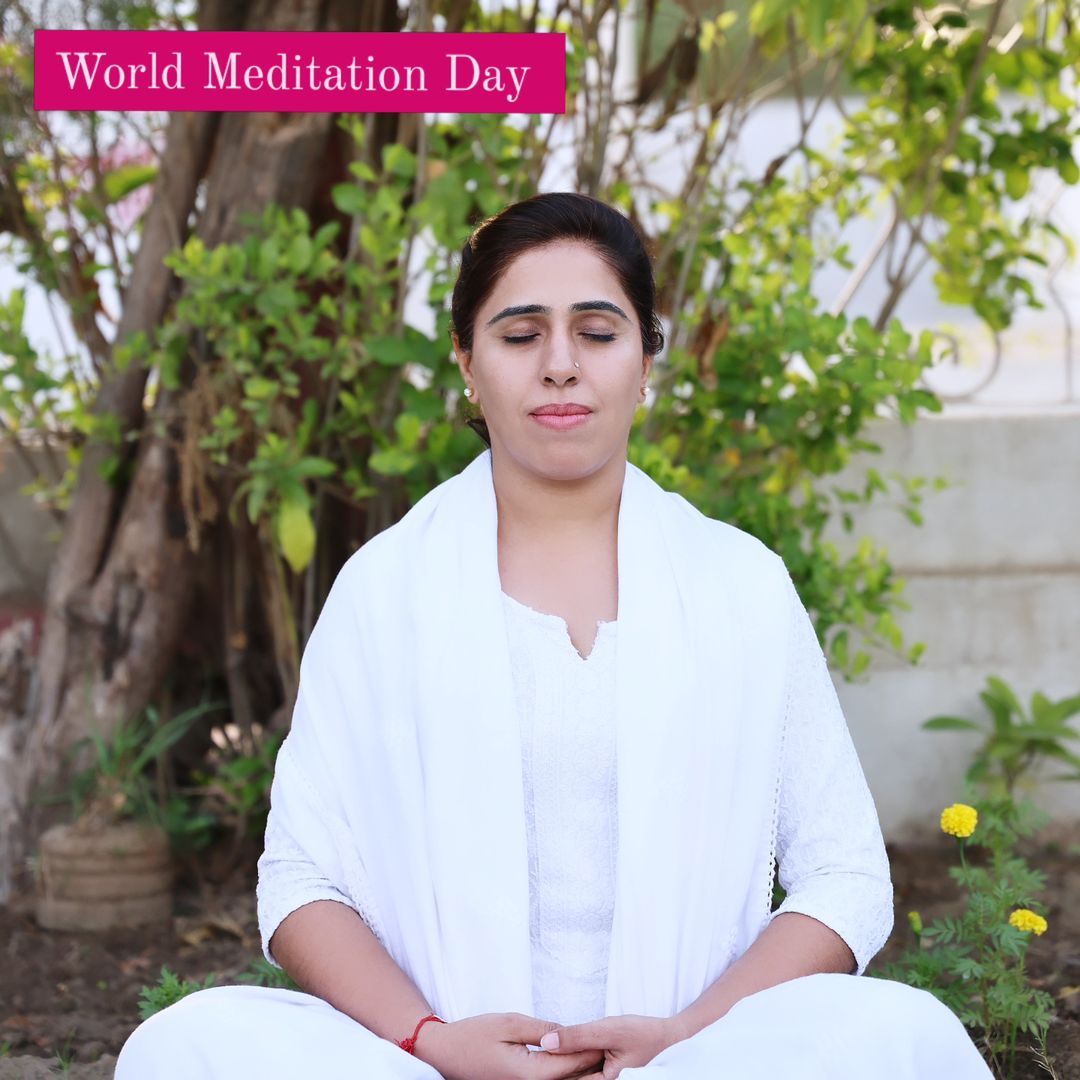It is evident however that stress and anxiety have become part of society in the present-day world. It is always interesting for people to find a way to add balance and peace to their daily lives. Among the most successful ways of achieving this is through the practice of mindfulness meditation. This has been in existence for many years and has been widely accepted by everyone in the society. I, Sakshi Patel, will take you through the process of learning and practising mindfulness meditation and teach you how to make your life more harmonious.

What is Mindfulness Meditation?
Mindfulness meditation is a type of meditation that is used to encourage individuals to be more aware of their surroundings. It helps the person focus on their thoughts and feelings without any form of criticism and thus enables them to be in the present instead of dwelling on the past or the future. The ability to accept the experience as it is and to be aware of it is developed via this practice.
There is a general misconception regarding mindfulness meditation and different types of meditations. But mindfulness meditation, in particular, is concerned with the here and now. It is not about trying to stop thinking or to try and empty the body’s mind but to try and become a great observer of the thoughts. You observe your own thoughts, sensations and feelings without getting involved with it in some way. This gentle awareness helps to decrease the level of stress and thus contributes to the increase in mental health.
Mindfulness meditation has the following advantages:
Mindfulness meditation is very beneficial and it has several advantages to the mind and the body. A number of studies conducted on the impact of practising mindfulness have revealed that it has a deep impact on the quality of life. These are a very few of the advantages.
Reduces Stress and Anxiety: Stress is one of the main reasons why people decide to practice mindfulness meditation. On the other hand, mindfulness is a practice that strives to live in the present and reduces worry, which is a primary cause of anxiety. It brings order in life and order is always associated with calmness.
Improves Emotional Health: Mindfulness meditation is very helpful because it helps you become the master of your feelings. This improves emotional intelligence, thus one is able to control his or her feelings appropriately. In the long run, this results in better and stable emotional health of the clients.
Enhances Focus and Concentration: Daily practice of mindfulness meditation can lead to an enhancement of the concentration span. When the mind has been trained to focus on the present moment, it is much easier to accomplish tasks without being side tracked easily.
Improves Sleep: Stress or racing thoughts are some of the reasons that cause sleep problems. Mindfulness meditation plays a role in clearing the mind and thus can be effective in the process of falling asleep and getting quality sleep.
Promotes Physical Health: It has also been found that mindfulness meditation has some benefits on physical health as well. There is evidence that it is beneficial as it has effects such as lowering blood pressure, boosting the immune system and alleviating chronic pain.
It is easy to practice mindfulness meditation and it is done in the following manner:
As you now know the advantages that come with mindfulness meditation, you may be interested in knowing how to begin it. The good news is it can be done by anyone and with no elaborate equipment needed. To get you started, here’s a fast start guide.
Find a Quiet Space: Find a place where there is no interruption or disturbance since you will be taking a lot of notes. You can sit on a chair, a cushion or just lie down if that will be more relaxing for you. It is important to be in a position where you are both composed and prepared to respond.
Focus on Your Breathing: Sit comfortably and then try to shut your eyes and then concentrate on your breathing. Pay attention to the inhalation and exhalation technique of breath. You don’t have to deliberately attempt to breathe as the exercise requires you to simply focus on your breath.
Be Aware of Your Thoughts: The first thing that will happen to you when you decide to pay attention to your breath is that the mind will wander. This is perfectly normal. When you realize that you are thinking, kindly redirect your attention to the breath. Do not scold yourself for distraction; it is enough to come back to the current time.
Practice Non-Judgmental Awareness: Self-compassion is one of the main components of mindfulness meditation where you are supposed to watch your thoughts without passing any judgment. No matter whether you are happy, sad, or even anxious, accept your emotions without considering whether they are good or bad. Letting them flow through our life like fleeting clouds in the sky is preferable.
Start with Short Sessions: For beginners, mindfulness meditation can be practiced for 5 to 10 minutes in the morning before going to work. Once you feel comfortable with what you are doing, you can then start extending the time which you spend practising the skill.
Guidelines on the Practice of a Stable Routine
It is important to be routine when practicing mindfulness meditation. The effectiveness of such an approach will be all the more noticeable, the more often you use it. Here are some tips to help you to maintain a regular practice.
Set a Regular Time: It is also important to set a particular hour in the day when you are going to meditate. It could be in the morning as you prepare to go on with your daily activities or in the evening when you are relaxed. This is specifically because it is easier to instill discipline when one has to practice at a given time.
Create a Calm Environment: Choose a quiet corner in your house where you would not be disturbed in your meditative session. This can be done through the use of lamps or candles that would make the room warm or through the use of fragrances such as essential oils.
Use Guided Meditations: If you are having a hard time meditating alone you can use guided mindfulness meditation applications or videos. These can be useful, particularly for the new learners.
Be Patient with Yourself: Meditation is a process and like any other, requires practice in order to master the art. Do not be discouraged if you have a hard time at the start. However, as you keep on practising, you will find that the improvements are slowly and steadily being made.
An Analysis of Mindfulness and Its Relevance to Daily Life
Another advantage of mindfulness meditation is that it may be used for the performance of daily tasks. It is very important to note that one does not have to be in a quiet room to practice mindfulness. To be more precise, you are to focus on the current moment while performing any tasks or actions in your day-to-day life.
For instance, when you are chewing, think about the savour, feel and odor of the food you are consuming. While strolling, pay attention to the feeling of your feet contact with the ground. By incorporating mindfulness to your daily routine, you will be able to notice that you have become more aware, attentive and composed in the course of the day.
Some of the misunderstandings people have about Mindfulness Meditation
However, there are several myths about mindfulness meditation even though it is becoming more and more popular. Let’s clear up a few of them:
Mindfulness is About Emptying Your Mind: Most people believe that the practice of mindfulness meditation is aimed at the elimination of thoughts from the mind. But it is important to note that the aim is to watch your thoughts, not to let them pull you in, not to eradicate them.
It’s Only for Relaxation: Although mindfulness meditation can be very calming, its goal is to increase the awareness of the individual and his or her surroundings. It is not just an exercise that is used to make the body relax.
You Need to Meditate for Hours: Some people have a notion that one has to sit in meditation for hours to derive some benefits from it. In fact, it has been confirmed that even if you spend only a few minutes a day in mindfulness meditation, your life will change for the better.
Conclusion
It is therefore useful to know that mindfulness meditation is a technique that has the potential to improve your life and make it more peaceful, harmonious and joyful. Regardless of one’s goal being stress reduction, better emotional well-being, or just being more mindful, the benefits of practicing mindfulness can be life-changing. Please bear this in mind, mindfulness meditation is not about doing things right or being perfect, it’s about developing the ability to be present and accepting of the situation at hand. This is the kind of life you will start experiencing as you go on with your mindfulness practice, and this will lead to a happier and more fulfilling life.
When followed and practiced as outlined here, you will be able to reap the benefits of mindfulness meditation in the shortest time possible. As Sakshi Patel, I invite you to take this journey and find out how mindfulness can change your life.




